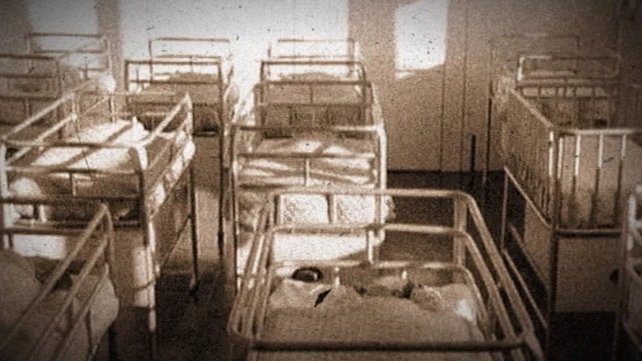Call over Submissions on Mother and Baby Homes
RTE News
Advocacy groups assisting people affected by Ireland's treatment of unmarried mothers and their children have urged the Commission of Investigation into Mother and Baby Homes to be proactive in inviting submissions to its key investigation committee. Justice for Magdalenes Research (JFMR) and the Adoption Rights Alliance (ARA) say they have discovered that people who thought they had made a submission for the purpose of the commission's investigation had in fact just met with the body's confidential committee. In a joint statement, the groups have urged the commission to explain to those affected the different powers of both committees. They welcomed yesterday's interim report from the commission, which persuaded the Government to extend the timeline for its three reports, allowing them all to be published in February 2018 instead of adhering to the original staggered timeline which envisaged the final report alone being published on that date. "We welcome that the Confidential Committee wants to take the time to meet all of the people who have expressed an interest in sharing their experiences. However, we are concerned that the Commission is not sufficiently advertising the existence or procedures of its Investigation Committee," according to the statement. It underlines that only the investigation committee will make specific findings in relation to any wrongful treatment of unmarried mothers and their children by institutions or individuals. And it urges the commission to be proactive in inviting people to give evidence to that committee. The two groups also say they expect the commission to adhere to the broad terms of reference set down by the Oireachtas for its social history module. Welcoming the commissioners' expressed desire that this third strand is comprehensive, the groups say if this is to be achieved, the commission will need to report on all the 170-plus "institutions, agencies and individuals which were involved with the treatment of unmarried mothers, and not just the limited group of 18 institutions which the Commission is initially investigating". The statement underlines that the commission's terms of reference require that the social history module examine the treatment of unmarried mothers and their children generally. Turning to the Government, the groups reiterate their call on the Government to widen the commission's terms of reference to facilitate an investigation of allegations of abuse concerning any of the 170-plus institutions, agencies and individuals concerned. "If the Commission's Investigation continues to be confined to a list of 18 institutions, it will not be possible for it to make comprehensive findings and recommendations and the majority of people affected by the issue will not have the opportunity to be heard," the groups assert. In the meantime, both the ARA and JFMR encourage witnesses affected by any of the 170-plus bodies and individuals to avail of free statement drafting assistance under their Clann project, launched recently in association with global law firm Hogan Lovells. They say Clann can assist witnesses to submit their statements to the commission and will accept statements from those who wish to share their testimony with the project. "Clann will anonymise shared statements and will gather documentary and archival materials in order to make a public group report to the Commission of Investigation, the Irish Government, and international human rights bodies," the statement says. The groups say the statement gathering process forms part of a larger project to create a comprehensive, permanent archive of the experiences of Ireland's unmarried mothers and their children via the Clann website. They emphasise that the project has also created a Guide to the Commission of Investigation, which includes information on the differences between the confidential committee and the investigation committee. The guide will now be updated with new information contained in the commission's first interim report, published yesterday by the Government. And the statement urges legislators to debate the report as soon as possible. "As the first interim report of the Commission has been published just after the Dail has broken for the summer recess we ask that time be allocated on the resumption of the Dail for the report to be debated in both Houses." Finally the two groups express concern at what they call "a lack of awareness of the Commission's work, particularly among the diaspora". "We also, therefore, urge the Commission to increase its advertising of both the Investigation Committee and Confidential Committee processes both within and outside of Ireland.”
|
.
Any original material on these pages is copyright © BishopAccountability.org 2004. Reproduce freely with attribution.
